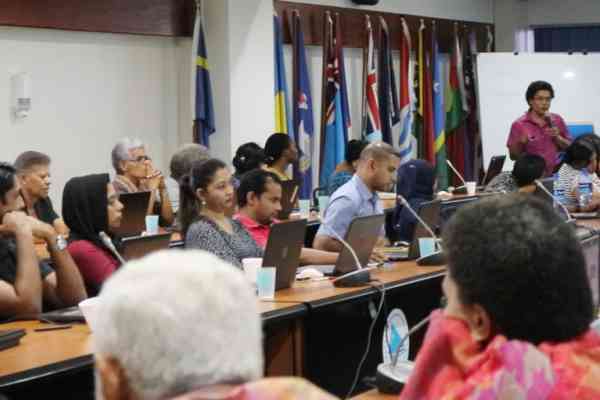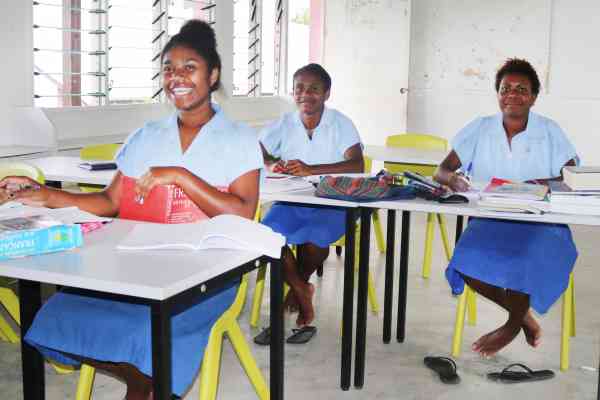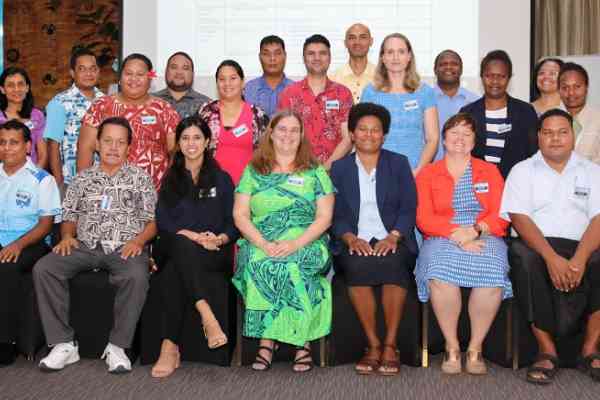In preparation for the 2025 Pacific Islands Literacy and Numeracy Assessment (PILNA), sampling officers from around the region convened for the Sub-regional PILNA sampling workshop to build capacity on sampling designs and processes.
The Pacific Community’s (SPC) Educational Quality and Assessment Programme (EQAP) facilitated the weeklong workshop that was attended by Senior Assessment Officers from Fiji, Papua New Guinea , Samoa, and Vanuatu. Due to the technical nature of the content, the workshop was delivered in an interactive and hands-on mode.
“The main objective of this workshop is to build the capacity of the countries to be able to carry out and apply the PILNA sampling processes at the national level. It was also an opportunity to identify and develop a network of national sampling officers dedicated to PILNA sampling,” said EQAP’s Research and Policy Team Leader, Michael Noa.
Noa added that apart from building capacity, the workshop also allowed participants to “confidently take ownership of the PILNA sampling processes in preparation for the 2025 cycle.”
Participating PILNA countries have extreme differences related to geographical and demographic characteristics, education system sizes, and school characteristics, affecting the precision of PILNA sampling standards. These differences have raised the need for more consistency in maintaining the level of comparability of results over subsequent administrations.
The PILNA sampling workshop not only provided a platform for participants to understand different sampling strategies but also to work according to the PILNA standards of participation as prescribed in the PILNA Sampling Framework.
Samoa’s Ministry of Education representative, Tuvaelagi Milovale shared her views that “…this sampling workshop is something we really need to take into consideration, in order to improve our learning outcomes and education, not only to satisfy the Ministry’s strategies but also the schools, communities and the parents”.
Similarly, Papua New Guinea’s representative to the workshop, Giles Waken stated his gratitude for participating in the workshop, “as we need to explain back at home how the PILNA sampling is done but also use the same techniques and methods we learned within this sampling workshop for drawing a representative sample in our own country national large-scale assessment.”
This sampling workshop is part of SPC’s long-term goal of preparing countries to take more autonomy and ownership of the PILNA sampling processes for PILNA 2025.


